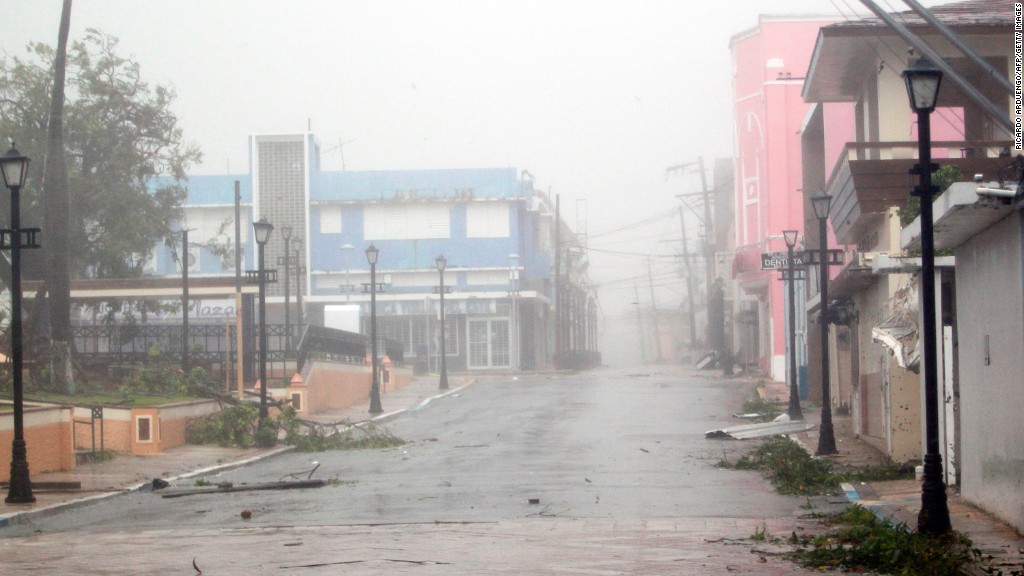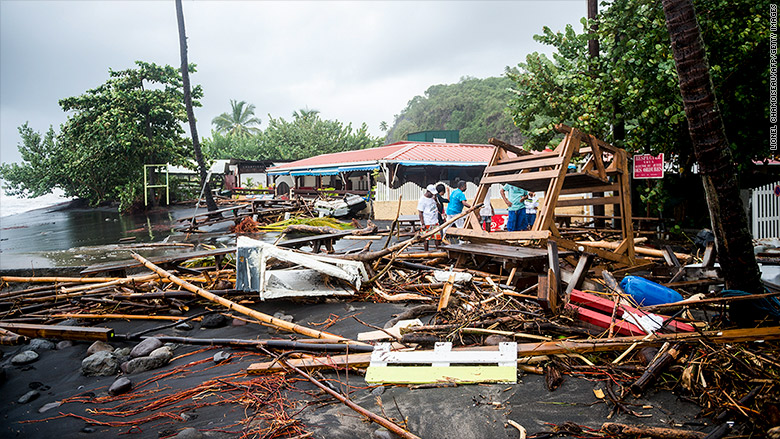
Puerto Rico is already in an 11-year economic recession. Now it must start rebuilding after Hurricane Maria left the island knocked out flat.
The island was completely without electricity Wednesday.
"This is total devastation," said Carlos Mercader, a spokesman for Puerto Rico's governor. "Puerto Rico, in terms of the infrastructure, will not be the same."
The total extent of the damage isn't known yet, but the visuals are telling: Roofs blown off, flooded streets, shattered windows, debris and remnants of palm trees strewn about. It was the strongest hurricane to hit the island since 1932.
Estimates of the financial toll are likely to start coming in over coming days. But the price tag will be large.
The Federal Emergency Management Agency, Congress and private insurance firms will take on the lion's share of that cost. But Puerto Rico's cash-strapped local government will have to take on some costs, too.
"We don't know what the aftermath of the hurricanes will be, but there will clearly be federal help to rebuild the infrastructure of both the Virgin Islands and Puerto Rico," says John Mousseau, an expert on Puerto Rican debt at Cumberland Advisors, a firm based in Florida.

Puerto Rico is already suffering through an epic economic crisis. There's no way it could foot the entire bill itself. In May, it filed for the largest municipal bankruptcy in U.S. history.
The government owes $74 billion to bondholders and it hasn't made a payment in over a year. It is trying to work out a payment schedule with an oversight board installed by Congress. This past summer, the island's government and the oversight board bickered over what the board called a lack of progress in a debt payment plan.
The island suffers from severely high unemployment -- more than 10% -- and an exodus of residents who have fled to the mainland U.S. for better job opportunities. Over 400,000 residents have left the island since 2004 -- 89,000 last year alone, according to the Pew Research Center. The current population is about 3.4 million.
There is a ray of hope in the gloom. Some experts say Maria's aftermath is an opportunity for Puerto Rico to rebuild roads, bridges and other infrastructure that desperately needed a makeover.
Plus, the recovery and reconstruction efforts could create much-needed jobs on the island.
"It's almost like wiping the slate clean," says Cate Long, founder of the Puerto Rico Clearinghouse, an independent research firm focused on the island's debts. "All the rebuilding will boost the economy."


